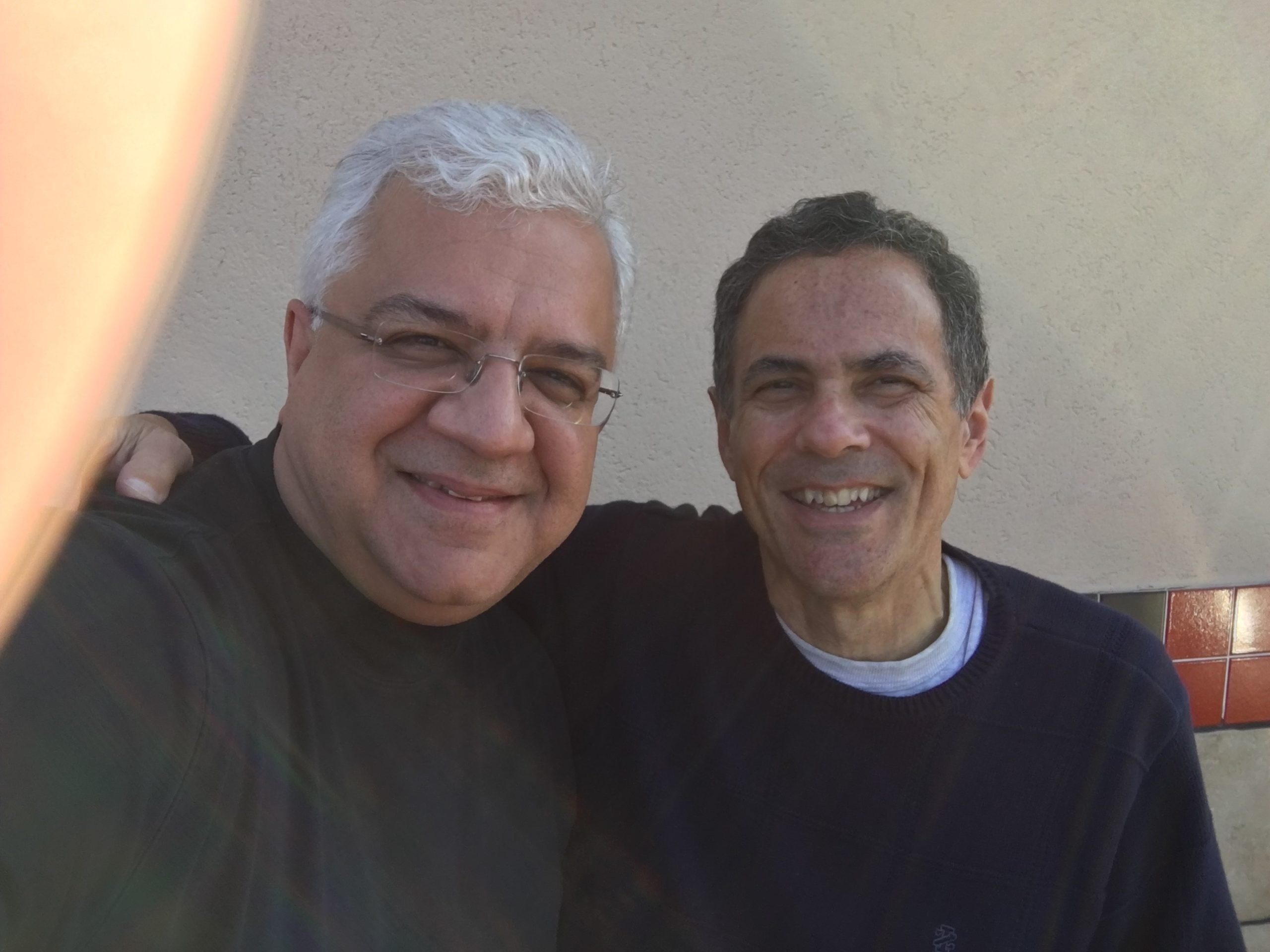We lost an incredible friend, patient advocate, and research partner on June 14, 2020. Dr. Neil Spector meant so much to so many people, and his contributions to patient advocacy and advancing research in the tick-borne disease community will be sorely missed. Many people and organizations have paid tribute to Neil’s life and work. We were very touched that Duke University honored Neil’s passing by lowering the flag at half-staff on June 17. In this post, we would like to share a little about what Neil Spector meant to our team at Galaxy Diagnostics.

We work in an important area of medical discovery at Galaxy. Our mission involves developing more sensitive test methods for elusive, slow-growing pathogens, driving research to support clinical practice, and building awareness about flea- and tick-borne infections that remain poorly understood in medicine and society today. Our efforts have most notably focused on Bartonella species infection and have recently expanded to include Borrelia species, Babesia species and other tick-borne agents that contribute to a growing population of individuals with persistent, complex and chronic symptoms. This work is incredibly difficult in a medical system that resists change and new ideas.
That is where this amazing man, Dr. Neil Spector, comes in. We met Neil a few years ago through his tick-borne disease advocacy work. Right from the beginning, we all knew that Neil was a special connection. As a well-regarded physician, researcher, and indeed patient, Neil saw parallels between cancer discovery and the research needed for Lyme Disease. That kind of creative, out-of-the-box thinking is exactly how our team approaches research on bartonellosis. So, we invited Neil to visit and share perspectives. The results were magical. Not only did Neil listen to our story about the clinical importance of Bartonella, but he dove into the emerging research with us, and then he acted by launching a research collaboration with our NCSU research partners to investigate the potential mechanisms of Bartonella oncogenesis in breast cancer cell lines and to develop immunotherapy treatments for borrelioses and bartonelloses. Neil saw the possibilities in the picture we painted for him. He did a LOT of homework and talked to a LOT of people. And then he created a path forward for the discovery work on Bartonella and Borrelia infections. Stunning impact in a short time
frame for a physician whose career had previously focused on cancer.
We will honor Neil’s memory by continuing the work of clarifying the clinical importance of these flea- and tick-borne infections for diseases affecting the heart, joints, brain, and other organs. We will also continue to investigate potential links between chronic infection and cancer.
In a recent email communication, Dr. Ed Breitschwerdt wrote, “Of all the exceptional leaders and human beings I have had the privilege to know, Neil was at the very top of the list. Honesty, integrity and vision are the three words that described our relationship. Several of us who worked closely with Neil in recent years have reaffirmed our determination to continue to pursue his vision relative to chronic infection and complex disease expression.”
To this point, Dr. Bob Mozayeni added, “We lost in Neil a major force in this mission and a loving friend. But this awareness is bigger than us all and we will see to it that this work continues one way or the other.”

There is so much more I could add about Neil Spector, the exceptional man, the caring physician, and the intrepid researcher. He embodied love and truth and integrity. With endless curiosity and humility, he never stopped learning and never stopped teaching. What a pure and special spirit. I will feel his loss both personally and professionally for a long time to come.
We send deepest sympathies out to his family, friends, and coworkers. For all the patients out there, we offer some comfort in Neil’s own words from an interview by Dana Parish published on Huffpost.com:
Dana: “What do you say to people who are in the black hole and fear they’ll never get better?”
Neil: “I tell them we’ve only just begun to fight and to hang in there. I tell them what I tell my cancer patients – to do what you can to stay healthy because better treatments are just around the corner. I honestly believe that, because we are going to repudiate the dogmatic approach that has led to a lot of suffering.”
To support the collective efforts to continue Neil’s research work on borreliosis and bartonellosis, please consider making a donation through the following organizations:
The Bay Area Lyme Disease Foundation and partners are raising funding to support Neil Spector’s’ research team at Duke University. The focus of their funding will support research related to borreliosis. All funding goes directly to research. https://www.bayarealyme.org/blog/story/neil-spector/
The NCSU-IPRL research team is also raising funds to support the continuation of Neil’s work. The focus of this funding will support research related to bartonellosis as part of cancer and immunotherapy research collaborations with Neil’s team at Duke University. Funding goes directly to research, less a small administrative fee to the Veterinary Medical Foundation.
- About The Bartonella Project: https://tinyurl.com/BartonellaProjectNCSU
- Donate here: http://go.ncsu.edu/BartonellaProjectFund
Peace and Love,
Amanda Elam, PhD
President/CEO
Galaxy Diagnostics, Inc.
References
Harbin, J. P. (2020). Gone too soon: Dr. Neil Spector passes away. Available from the Duke Cancer Institute website: http://dukecancerinstitute.org/news/gone-too-soon-dr-neil-spector-passes-away
Hudson Funeral Home. (2020). Neil Lee Spector [obituary]. Available from: https://hudsonfuneralhome.com/obituary/neil-lee-spector/
LymeDisease.org. (2017). Watch Dr. Neil Spector’s “Focus on Lyme” video now. Available from: https://www.lymedisease.org/neil-spector-focus-lyme-video/
Parrish, D. (2016, February 19). Lyme: The infectious disease equivalent of cancer, says top Duke oncologist [blog post]. Huffpost.com. https://www.huffpost.com/entry/lyme-the-infectious-disea_b_9243460


